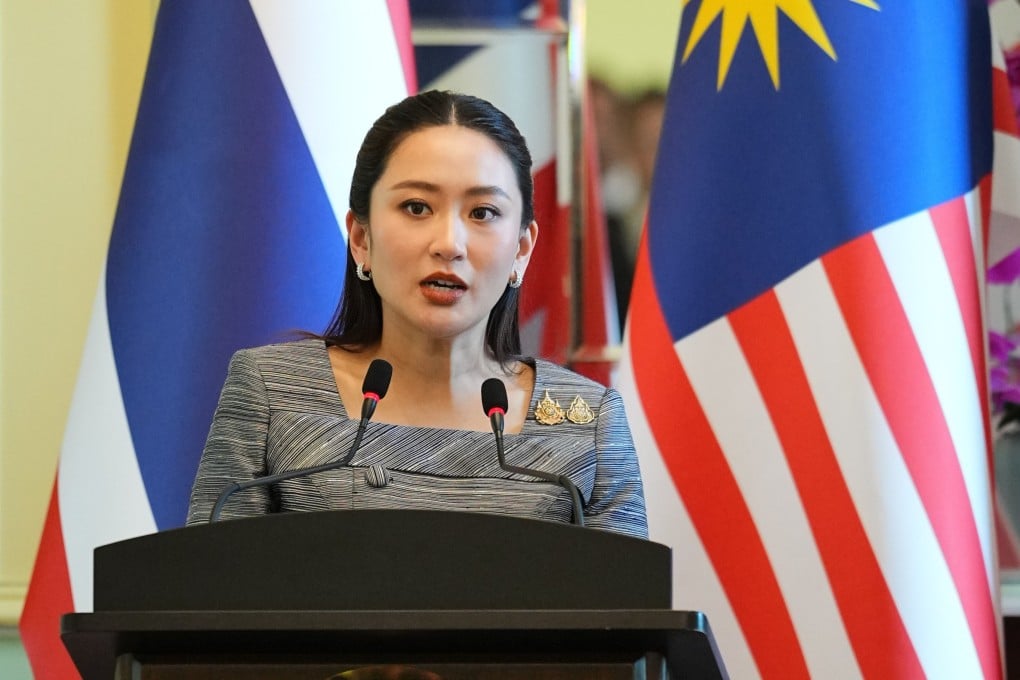Thai opposition leader outpolls incumbent in preferred PM survey
Natthaphong Ruengpanyawut, leader of the People’s Party, was selected by 29.9 per cent of 2,000 respondents

Thailand’s main opposition party leader has overtaken incumbent Prime Minister Paetongtarn Shinawatra in a prominent opinion poll as the most preferred leader of Southeast Asia’s second-largest economy.
Natthaphong Ruengpanyawut, leader of the People’s Party, was selected by 29.9 per cent of 2,000 respondents as the person they “would support to become prime minister today,” according to the quarterly survey result issued on Sunday by the National Institute of Development Administration. He was seen to be the candidate most likely to continue the party’s ideology and to be most compatible with the new generation, it said.
Thailand’s general election will not be held until at least 2027, but the poll by the Bangkok-based graduate school is widely perceived as a barometer of the country’s political mood. Paetongtarn was picked for the prime ministerial post in August in a parliament vote just days after the removal of her predecessor, Srettha Thavisin, by the Constitutional Court in an ethics violation case.
The People’s Party topped the list for the most popular political party with a 37.3 per cent approval rating, edging up from 34.3 per cent in a survey in September. The ruling Pheu Thai Party was in second place with 27.7 per cent, compared to 27.2 per cent in the earlier survey.
The popularity of Paetongtarn, the youngest daughter of former prime minister Thaksin Shinawatra, surged in the September survey as the then-new government approved its version of a cash-handout programme. In that poll, she ranked highest with 31.4 per cent of the vote, while Natthaphong came in third.
In the latest survey, she was second choice for the most preferred prime minister, securing 28.8 per cent of respondents’ support.
